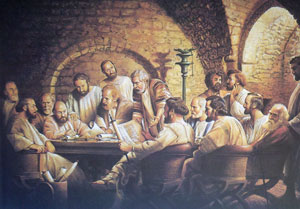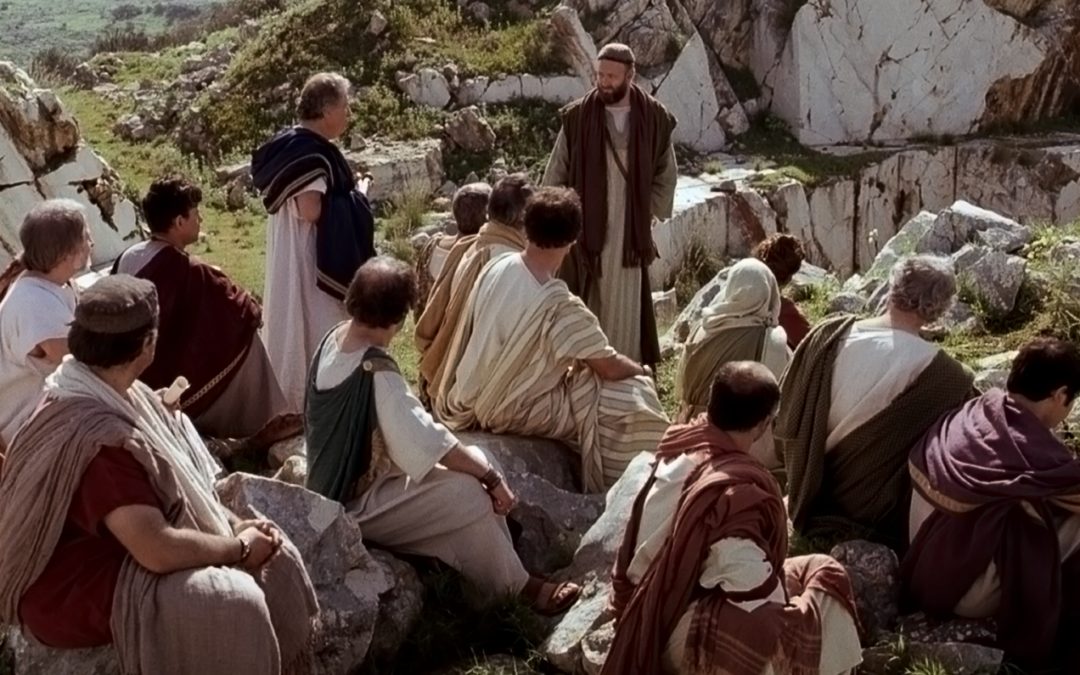Is Organized Religion a Choice? Or a Requirement?
There are some who claim that the congregations throughout the known world in the first century were completely autonomous, to which such claims are made usually with the intent of justifying a personal dismissal of all denominations today, or negating the need to assemble for worship with others altogether. “I just wanna worship God in the way that I personally want to” they say, which for many is often a clever way of minimizing the worship of God as a whole in favor of self-indulgence. Though for others, it is because organized religion has proved to be disappointing to them, at least to the degree in which they have sincerely and with fairness investigated them. This can be understandable, as the majority of organized religions are disappointing! But what do the scriptures teach us about the organization of first century Christianity? Was the first century Christian congregation an organization, or not?
The book of Acts contains accounts of the establishments of congregations in the years following Christ’s death. Apostles and their companions would travel around in missionary journeys, preaching the good news, and establishing congregations through the lands. Each congregation was given instruction on how their gatherings for worship were to be conducted.
A Decision That Affected All Congregations

“Now as they traveled on through the cities they would deliver to those there for observance the decrees that had been decided upon by the apostles and older men who were in Jerusalem.” – Acts 16:4
In Acts chapter 15, Paul and Barnabas have just returned to the Syrian city of Antioch from their first missionary tour. Antioch had already been established as a congregation, and now many Gentiles (non-Jews) were coming in a joining themselves to this congregation (Acts 11:20-26). But a significant problem arose: Jewish Christians had been circumcised in accord with the Law of Moses, and were insisting that the new Gentile converts be subjected to circumcision too in order to have God’s approval. As a result, “there had occurred no little dissension and disputing by Paul and Barnabas with them” (Acts 15:2) While Barnabas and Paul, even though he was an Apostle, tried to reason with them on the matter, they insisted that the issue be taken to the Jerusalem Council (or Governing Body). The council, after coming to a decision, wrote a letter and sent it back. To fortify their decision, they sent 2 more council members, Judas and Silas, to go along with Paul and Barnabas and the men from the congregation that came with them, back to that congregation to settle the matter.
Acts 15:2 – The Antioch congregation argues with Paul and Barnabas, and insists on sending the matter to the elders in the Jerusalem congregation. Paul and Barnabas acquiesce.
Acts 15:4 – They arrive at Jerusalem and visit the congregation as a whole.
Acts 15:5 – The issue divides the Jerusalem congregation just as it did the Antioch congregation.
Acts 15:6-22 – The Body, made up of Apostles and other older men, then meets separately to discuss it.
Acts 15:22-29 – The Body compiles a letter and has it sent to Antioch, along with 2 of the Body’s members, Judas and Silas – so there can be no accusation it is just Paul and Barnabas returning with their own views again.
Acts 15:30-35 – After the matter has been clearly settled, Judas and Silas return to Jerusalem. Paul and Barnabas stay in Antioch, now able to do the work they went their to do without hinderance.
Now was this a unique situation that only pertained to Antioch? In other words, was this just one instance where it just so happened that Antioch had to reach out for advice from just another neighboring church, and it just happened to be the one in Jerusalem? No, for upon leaving Antioch, Paul decides “let us return and visit the brothers in every one of the cities in which we published the word of Jehovah to see how they are” (Acts 15:36). Guess what was one of the reasons why Paul wanted to do this thing? The Bible tells us…
Acts 16:4, 5 “Now as they traveled on through the cities they would deliver to those there for observance the decrees that had been decided upon by the apostles and older men who were in Jerusalem. Therefore, indeed, the congregations continued to be made firm in the faith and to increase in number from day to day.”
So we can see that the account clearly says that it was a private meeting of apostles and older men that took place in the city of Jerusalem, where they would meet at that particular time in their early history. Their decision becomes an official decree, and all other congregations in the then known world are subject to being obedient to this decision.
A Scriptural Organizational Precedent
True Christians today see the account in Acts 15 as a historical record that sets a pattern to be followed, inasmuch as the direction found in 1 Timothy 3 is likewise an organizational precedent preserved for us in the scriptures. Since the individual congregations of the first century were established by the apostles to be part of a larger unified organization, it’s clear that True Christianity is literally a unified organization with a common denominator, or set of beliefs rooted in God’s Word. Therefore, we should not be quick to dismiss organized religion as a whole when we are on a serious pursuit of finding the truth today. Organized religion is not an option for individuals, but actually part of God’s purpose – something we want to be including ourselves in.
.



